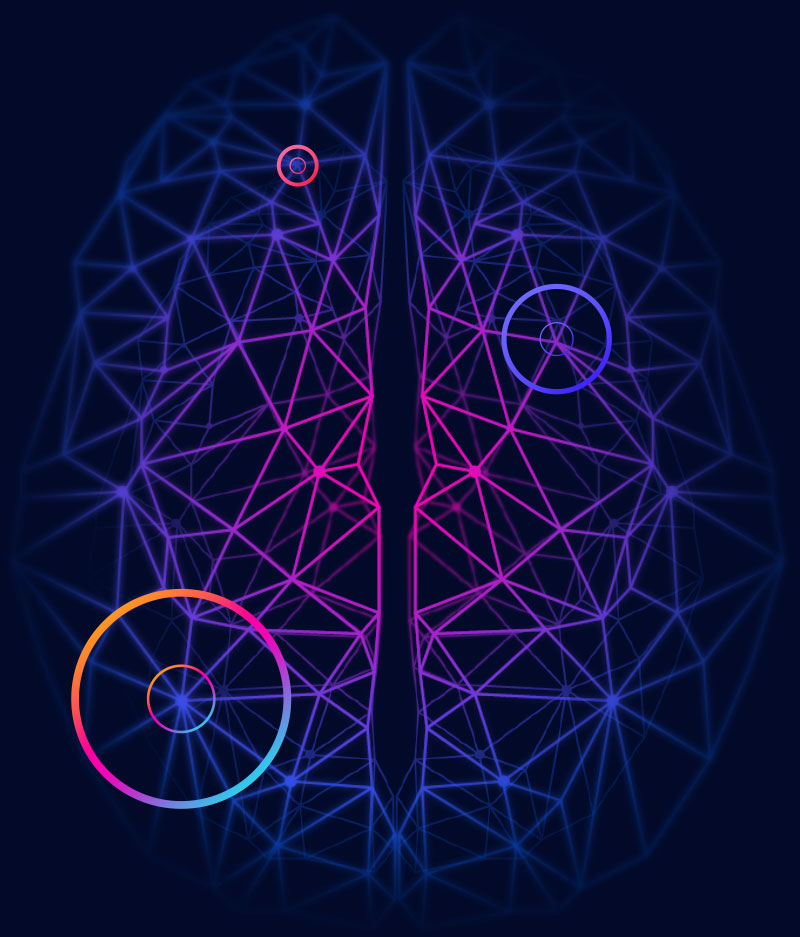Neurology
Neurology for the 21st Century
Full Breadth of Neurological Services:
- Neurological Evaluations and Consultations
- Independent Medical Examinations (IME)
- Records Review
- Work Injury Evaluations
- Concussion Evaluations
-
Deep Brain Stimulation
- Vagus Nerve Stimulation
- Therapeutic Botulinum Toxin Injections
- Infusion Services
Full Range of Neurological Diagnostic Tests:
- EMG-NCS
- Diagnostic Ultrasound
- EEG Testing & Interpretations
- Cognitive Testing

Our Neurologist
Dr. Sudhir S. Athni, MD, MBA
BS in Environmental and Civil Engineering from Rice University in Houston, TX – graduated Magna Cum Laude
MD from Baylor College of Medicine, in Houston, TX – graduated with Honors
Internal Medicine Internship at Baylor College of Medicine, Houston, TX
Neurology Residency at Baylor College of Medicine, Houston, TX
MBA from Mercer University, Macon, GA – graduated with Honors
Board Certified by the American Board of Neurology (ABPN)
President of the Georgia Neurological Society
Assistant Clinical Professor @ Medical College of GA
Captain in U.S. Air Force Reserves, Medical Corps – Honorable Discharge

What is a Neurologist?
A Neurologist is a Medical Doctor, specialized in the study of the Nervous System.
- The field of Neurology includes the study of diseases of the:
- brain
- spinal cord
- peripheral nerves
- muscles.
- Education and training to become a Neurologist:
- 4 years of college
- 4 years of medical school
- 4 years Residency in the field of “Neurology”
How does a Neurologist evaluate a patient?
- A Neurologist will obtain a detailed neurological history and a detailed neurological exam to better understand your condition.
- The Neurological exam is probably very different from any previous medical exam you might have undertaken.
- This evaluation process may take anywhere from 45 minutes to 60 minutes.
How is a diagnosis made?
- After reviewing the results of various diagnostic tests, in conjunction with the neurological evaluation, a diagnosis and treatment plan will be recommended.
- This evaluation process may take numerous visits, over a period of 4-8 weeks.
- Please do not expect a firm diagnosis on your first visit.
Contact Info and Office Hours
Ph – 478-471-6217
Fax – 478-471-8663
Text Message – 478-471-6217 (SMS)
BEST METHOD – Text us at 478-471-6217
Mon: Closed
Tues: 8:30 am to 4:30 pm
Wed: 8:30 am to 4:30 pm
Thurs: 8:30 am to 4:30 pm
Fri: Closed
Sat: Closed
Sun: Closed
Holidays: Closed
Services We Provide
Our office provides the full breadth of Neurological Services including:
- Evaluation & Management (E&M)
- Diagnostic Tests
- Infusion Therapies
- DBS and VNS Programming
- Therapeutic Botox Injections
E&M services include:
- a detailed neurological evaluation,
- ordering necessary tests,
- arriving at a diagnosis,
- followed by a treatment plan to treat the diagnosed neurological problem.
Diagnostic testing we do in our office includes:
- EMG-NCS tests
- Diagnostic Ultrasound
- EEG and Qeeg (“brain wave testing”)
- Brain-Master Cognitive test
- Autonomic Nervous System Test (ANS)
Infusion Therapies involve the prescribing, administering, and monitoring of medications which are given thru an IV. We have an “infusion suite” in our building, where patients receive various infusion medications, such as:
- Tysabri
- Ocrevus
- Briumvi
- Rituxan
- Solumedrol (IV steroids)
- IVIG
- Vyvgart
- Imaavy
- Soliris – Ultimaris
- Vyepti
- and many other medications
Deep Brain Stimulation (DBS) is a technology where electrical wires and implanted into the brain,. These wires are used to “stimulate the brain”, the settings for which are programmed thru a hand-held computer. DDB is an option for treating Parkinson’s, Dystonia, Tremors, or Epilepsy.
Vagal Nerve Stimulation (VNS) is a technology where a wire is placed in the neck (not in the brain). This wire is used to “stimulate the vagus nerve”, the settings for which are programmed thru a hand-held computer. VNS is an option for treating Refractory Epilepsy.
Therapeutic Botox is a method of injecting Botulinum Toxin into the neck, face, and head to treat headaches and dystonia. It can also be injected into the arms and legs to treat “spasticity”.
Illnesses We Treat
We will evaluate and treat the full range of Neurological diseases, including:
- Multiple Sclerosis
- Parkinson’s Disease
- Myasthenia Gravis
- Seizures
- Headaches
- Neck pain
- Back pain
- Dystonia
- CIDP – Neuropathy
- Trigeminal Neuralgia (facial pain)
- Dementia / memory problems
- Alzheimer’s Disease
- Carpal Tunnel Syndrome
- Concussions, TBI and Closed Head Injuries
- Plus many more …
In the process of making the above diagnoses, we will perform a variety of diagnostic tests.
Please take a look at our “Diagnostic Tests” page to read more about the various neurological tests.
Thank You!
Dear Patient,
As part of our commitment to providing exceptional care, our office plays an integral part in medical education, helping young doctors-in-training learn Clinical Neurology.
I want to express my gratitude for your willingness to participate in medical education. Your contributions play a vital role in shaping the next generation of healthcare professionals.
Why Your Assistance Matters:
-
- Educational Impact: By allowing students to observe and learn during your appointments, you contribute to their understanding of real-world patient interactions. Your experiences provide invaluable insights.
- Clinical Exposure: Students gain firsthand knowledge of various medical conditions, diagnostic processes, and treatment plans through your case. Your openness fosters a rich learning environment.
- Empathy and Communication: Your interactions demonstrate effective communication, empathy, and patient-centered care. These qualities inspire students to emulate best practices.
How You Can Help:
-
- Be Open: Continue sharing your experiences openly. Your insights into symptoms, coping strategies, and treatment outcomes are invaluable.
- Ask Questions: Feel free to ask students about their learning goals. Engaging in dialogue helps them refine their skills and knowledge.
- Feedback: Provide constructive feedback. Let us know how we can enhance the educational experience for both you and the students.
Benefits for You:
-
- Enhanced Care: Student involvement often leads to thorough assessments and comprehensive care plans.
- Empowerment: Knowing that you contribute to medical education empowers you as an active participant in your own health journey.
- Community Impact: By educating future healthcare providers, you positively impact the broader community.
Thank you for your generosity and willingness to be part of our educational mission. Your partnership ensures that compassionate, competent care continues to thrive.
Warmest regards,
Sudhir S. Athni, MD
Medical Director, Neurology of Central Georgia
Assistant Clinical Professor, Medical College of Georgia
President, Georgia Neurological Society
Our Office Staff
Our office staff is available to assist you with scheduling appointments, billing, and processing insurance claims.
They will also be the liaison for any medically related questions. We try to answer your questions by the end of the business day.
If it is urgent, please inform us as such, and we will try to return your call as soon as possible.
Chalandra S. – Medical Assistant
- Chalandra is an integral part of our team. She handles scheduling and all clinical matters.
- She has developed a reputation for being courteous and prompt.
- With her medical foundation and experience, she is able to assist with patient care.
Ash. A. – Office Manager
- Ash handles referral processing, insurance verification and claim issues, and all financial matters, including payment and collections issues.
- If you have any questions regarding your account, Ash will gladly assist you.
Tracy R. – Certified Infusion Nurse
- Tracy is our licensed registered nurses (RN) with special qualifications in Infusion Therapy
- Proficient and nationally certified to infuse Tysabri, Ocrevus, Lemtrada, IVIG, and numerous other intravenous medications.
- She has been with our team for numerous years
Mike T. – Certified Ultrasonographer
- Mike has been assisting us since 2006. He is a board certified Ultrasonographer, with over 15 years of professional experience.
What is a Neurologist?
Click here to learn more.

Contact Us - Office Hours
Click here to learn how and when to contact us.
Services Provided
Click here to learn about the full list of services provided.
Illnesses We Treat
What do we treat? Click here to learn more.
"Thank You" Letter
Our office is a teaching facility. Click here to read our Thank You Letter.

Our Office Staff
Click here to learn about our Office Staff.
New Patients – New Referrals
Information For New Patients
We see new patients on a “referral only” basis, which means we require a proper referral from your PCP – regardless of your insurance.
At this time, we do NOT see “self-pay” patients without a valid insurance.
If you have seen another Neurologist, we must be forwarded your medical records for review prior to receiving an appointment.
Who can go into exam room?

Who can go into the exam room?
- If you are being seen thru Worker’s Comp, we will only allow the patient in the exam room.
- If a NCM or Adjustor wants to meet with Dr. Athni, they will need to schedule a separate appointment with the front office.
- If you are an adult and are being seen thru your private insurance or Medicare or Tricare, we will allow your spouse into the exam room (immediate next-of-kin)
- For ANYONE ELSE, we will need a notarized Medical Power-of-Attorney (Medical POA) stating the third-party is allowed to be involved in the patient’s care. This would include friends or a parent of a patient or an adult child of a patient.
- This is a standard practice in Psychiatric offices. Although we are not treating Psychiatric illnesses, many of our patients have cognitive and neurodegenerative issues. To make sure decisions are being made in the best interest of the patient, we require such a POA. Even if you do not have any issues which involve your cognitive abilities, we have one policy for all patients.
- We hope you understand the rationale for this policy. We are merely trying to make sure unauthorized people (who may not have the patient’s best interest) are not involved in medical decisions.

Work Injuries – IME – Records Review
Services offered for attorneys, insurance companies, and WC adjusters.
Our office is able to evaluate and treat patients with work injuries and / or perform Independent Medical Exams (IME).
Dr Athni is also able to review medical records for defense or plaintiff attorneys who are involved in a MVA case, medical malpractice case, or work injury claim.
Please click on the links below for more details. Contact us directly for more information.
Neurology of Central Georgia
175 Water Tower Ct
Macon, GA 31210
Contact
Fax – (478) 471-8663
Text – (478) 471-6217
